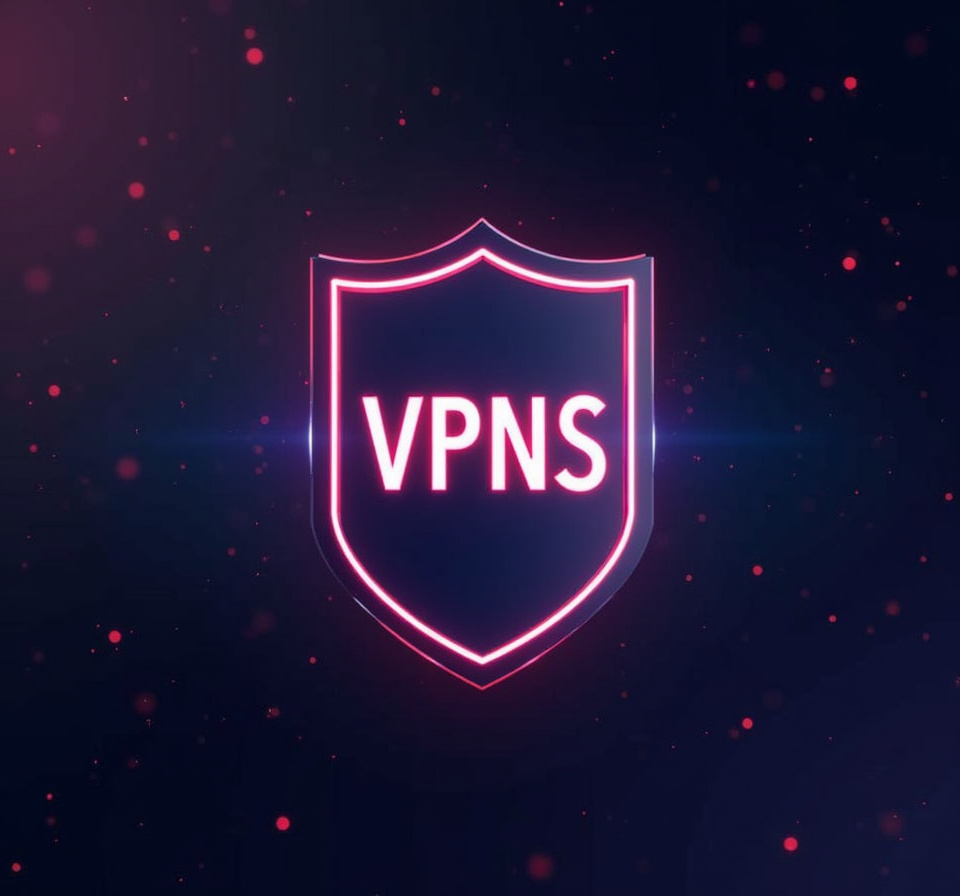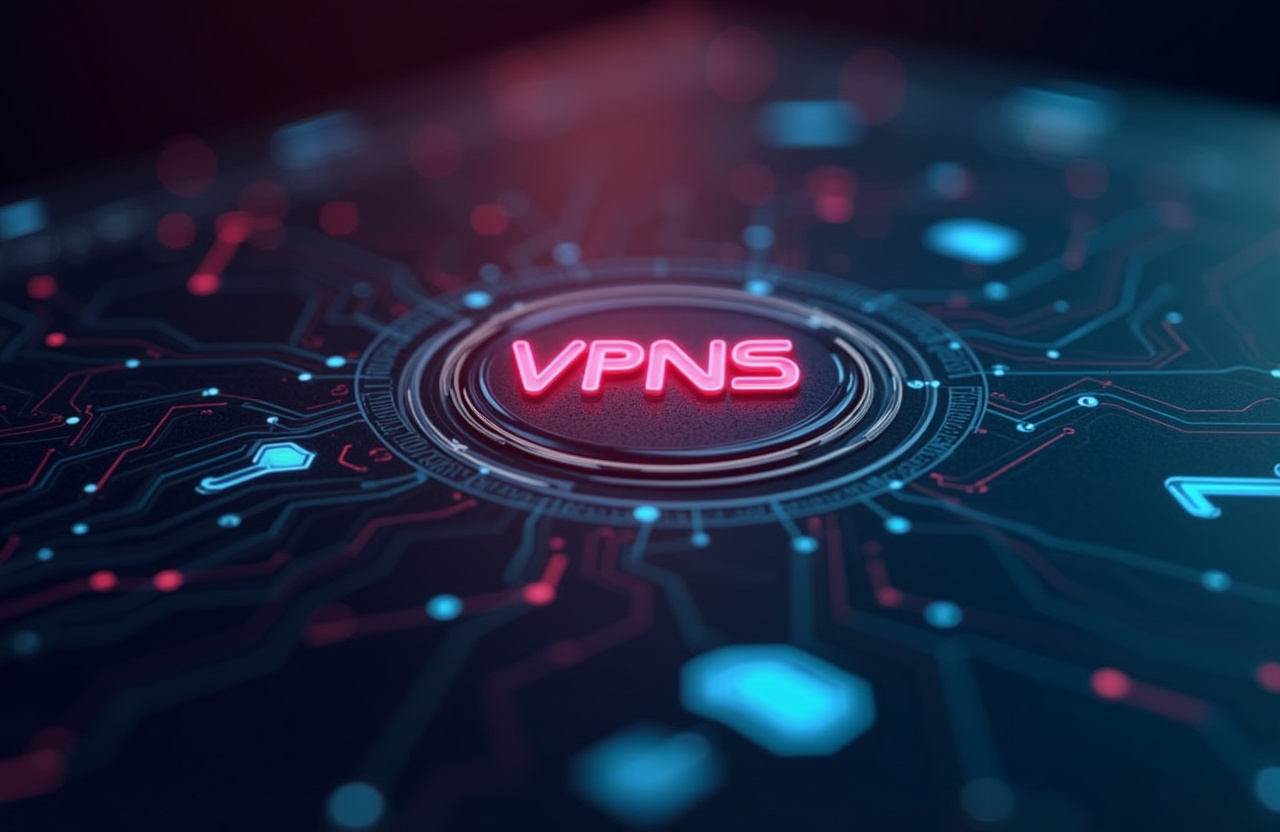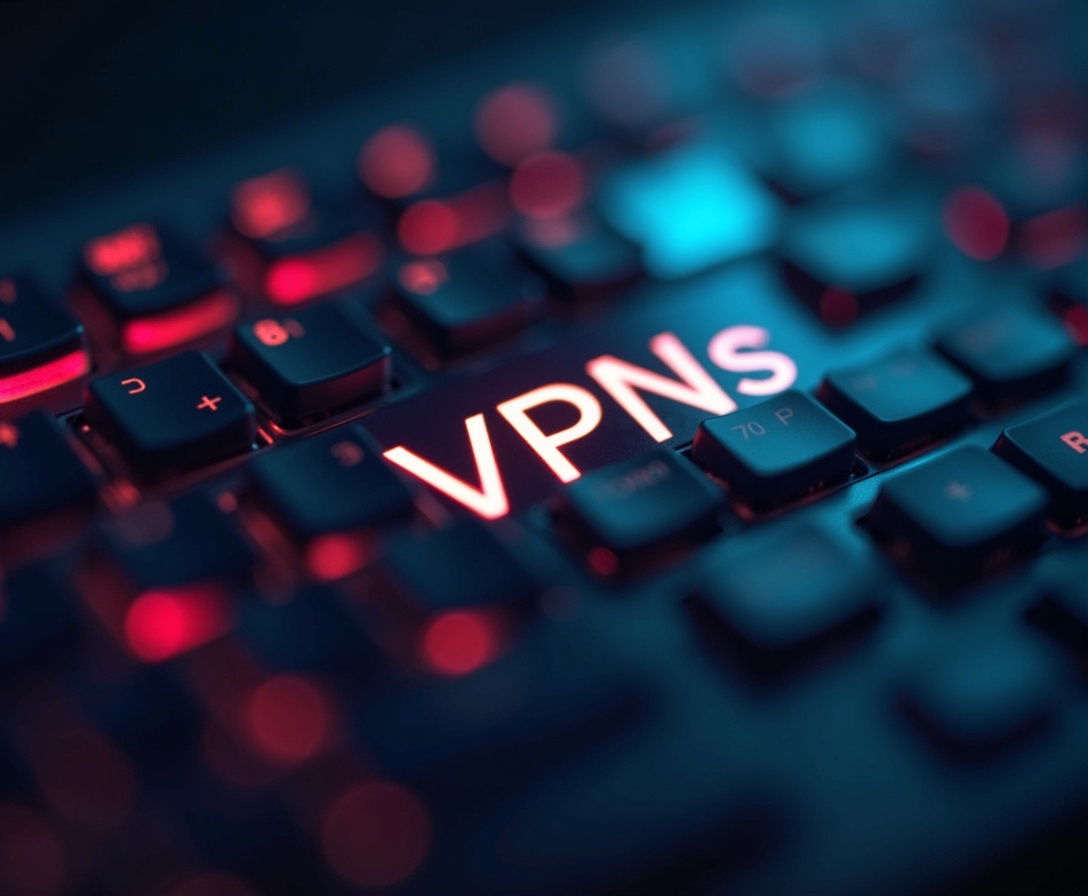VPNs for E-Sports: Securing Player Data and Streams

Table of Contents
Introduction: Protecting Competitive Gaming with VPNs
The burgeoning world of e-sports has transformed from a niche hobby into a multi-billion dollar industry, attracting millions of viewers and spawning professional leagues with lucrative sponsorships. This rapid growth, however, has also made e-sports a prime target for cyber threats, demanding robust security measures to protect players, teams, and streaming content. Virtual Private Networks (VPNs) have emerged as a crucial tool in bolstering the security infrastructure of e-sports, providing a shield against various online vulnerabilities.
This article delves into the fundamental role of VPNs in securing player data, ensuring stream protection, and safeguarding the overall integrity of competitive gaming. Data breaches, DDoS attacks, and stream hijacking are just a few of the potential threats that can disrupt tournaments, compromise sensitive information, and ultimately damage the reputation of the e-sports ecosystem. A VPN acts as an intermediary between the player's device and the internet, encrypting all traffic and masking the IP address.
This encryption process scrambles the data, making it unreadable to malicious actors attempting to intercept sensitive information such as login credentials, financial details, or personal data. By concealing the IP address, a VPN effectively hides the player's location, preventing targeted attacks based solely on IP information. This is especially important for professional gamers who often travel to different countries for tournaments, making them vulnerable to surveillance and location-based exploits.
'E-sports VPN' solutions are tailored to minimize latency, a critical factor in competitive gaming where milliseconds can make the difference between victory and defeat. Prioritizing speed and stability ensures that the added security doesn’t negatively impact gameplay. Consequently, the selection of a VPN must be carefully considered, weighing the security features against the potential for performance degradation.
Choosing a server location strategically can also reduce ping times, optimizing the connection for competitive matches. The increase of sophisticated cyberattacks targeting gaming networks and events make the need for reliable VPN services indisputable. The integrity of ranked matches, online tournaments, and the professional careers of players are deeply connected with the safe and secure gaming environment facilitated by the utilization of VPN technology.
By establishing a tunnel of protection and anonymity, players can shield their personal details and gaming activities from potential threats lurking in public networks and unknown connections. E-sports organizations are increasingly incorporating VPNs into their security protocols, not only for individual players but also for team communications and tournament servers. Properly configured VPNs can add an extra layer of security to voice and video conferencing used for team strategy sessions, preventing eavesdropping and ensuring confidentiality.
Securing tournament servers with VPNs can mitigate the risks of DDoS attacks, maintaining the stability and integrity of online competitions. Beyond basic security, high-quality e-sports VPNs also offer features that are specifically beneficial for gamers. One such feature is circumventing geographical restrictions.
Some games or game servers might be limited to certain regions, and a VPN allows players to connect to servers in different countries, expanding their access to a wider range of gaming experiences. This is especially valuable for players who want to compete in tournaments or leagues that are not available in their region. Furthermore, a VPN can help players bypass internet censorship and access gaming content that may be blocked in their country.
This ensures that players can always stay connected, regardless of their location or the local internet regulations. It’s also possible to avoid bandwidth throttling, which is quite common when gaming. By masking their IP address, players can avoid being targeted by ISPs that throttle bandwidth for specific types of online activity, ensuring a smooth and uninterrupted gaming experience.
Protection of player data security cannot be overstated in the current digital landscape where personal information is a valuable commodity for hackers. E-sports players, like any other online users, generate massive amounts of data, including login credentials, payment information, game statistics, and personal communications. This data is often stored on various platforms, creating multiple points of vulnerability.
Without adequate security measures, this data is at risk of being compromised, leading to identity theft, financial fraud, or reputational damage. 'Player data security' is paramount for maintaining the trust and confidence of both players and fans. A VPN acts as a critical safeguard, encrypting all data transmitted between the player's device and the game servers.
This encryption prevents hackers from intercepting sensitive information, even if they manage to infiltrate the network. Furthermore, many VPN providers offer additional security features such as malware detection, ad blocking, and phishing protection, further enhancing the overall security posture of the player's device. The combination of these features creates a comprehensive defense against various online threats specifically designed to compromise user accounts and steal personal information.
Apart from encrypting the data, VPNs provide another layer of security by masking the IP address. This prevents hackers from associating the player's online activities with their real-world identity. In addition to enhancing player security, the use of VPNs also benefits e-sports organizations.
By implementing VPNs across their network infrastructure, organizations can protect their proprietary data, secure their communication channels, and prevent unauthorized access to sensitive information. This can include strategies used in competitive gaming and other sensitive documentation for the team and the whole e-sports organization. Team documents, financial records, and other confidential information can be intercepted if not secured appropriately.
A robust VPN solution can provide an effective barrier against such threats. The implementation of strong encryption protocols is crucial in achieving a higher level of data protection for e-sports teams. Encryption algorithms transform information into an unreadable format, preventing unauthorized parties from deciphering the data, even if they gain access to it.
Advanced Encryption Standard (AES) with a 256-bit key is typically considered the gold standard for encryption, ensuring virtually unbreakable protection. This also extends to securing communication channels, enabling team members to exchange strategies, feedback, and confidential information without the risk of exposure. Secure communication protocols like Secure Sockets Layer (SSL) and Transport Layer Security (TLS) should be implemented alongside VPN for data protection.
The implementation of multi-factor authentication adds an extra layer of security by requiring users to provide multiple forms of identification before granting access to sensitive accounts and data. For example, using a combination of passwords, biometrics, or authentication apps. Regular security audits and vulnerability assessments are vital to identify and address any potential weaknesses in the system.
Penetration testing simulates real-world attacks, helping to uncover vulnerabilities that could be exploited by malicious actors. Keeping software and systems up-to-date ensures that any known vulnerabilities are patched promptly. Regular security awareness training for players and staff is equally important to educate them about potential threats and best practices for staying safe online.
Phishing scams, social engineering attacks, and other deceptive tactics are common ways for hackers to gain access to sensitive information. Teaching players how to identify and avoid these threats creates an additional security layer. The future of e-sports heavily relies on trust, both from the players and the audiences.
By focusing on robust data protection strategies, including the effective utilization of appropriate VPN services, e-sports organizations can cultivate a trustworthy environment that promotes integrity, maintains fair play, and drives the continued growth of this exciting industry. Continuous monitoring of network traffic can help detect suspicious activity and potential security breaches. This enables organizations to respond quickly to threats and minimize damage.
'Stream protection' is another crucial aspect of e-sports security, as live streaming has become an integral part of the competitive gaming experience. E-sports tournaments and matches are broadcast online to millions of viewers worldwide, making streaming platforms a prime target for malicious actors. One of the most common threats to streaming is DDoS attacks, which can overwhelm the streaming server with excessive traffic, causing disruptions, lags, or even complete blackouts.
These attacks not only spoil the viewing experience for fans but can also damage the reputation of the streaming platform and the integrity of the tournament. A VPN can mitigate the risk of DDoS attacks by masking the streamer's IP address and redirecting traffic through its secure servers. This prevents attackers from targeting the streamer's direct IP address and makes it difficult to launch a successful DDoS attack.
Furthermore, some VPNs offer DDoS protection features, which automatically detect and block malicious traffic, ensuring a stable and uninterrupted stream. In addition to DDoS attacks, stream hijacking is another significant concern. Stream hijacking occurs when unauthorized individuals gain access to a streamer's account and broadcast inappropriate or malicious content.
This harms the streamer's reputation and can expose viewers to offensive or harmful material. A VPN can enhance stream protection by adding an extra layer of security to the streaming process. By encrypting the streaming traffic and masking the streamer's IP address, a VPN prevents hackers from intercepting login credentials or gaining unauthorized access to the streaming account.
Multi-factor authentication, as previously mentioned, also plays a vital role in securing streaming accounts. By requiring multiple forms of identification, such as a password and a code from a mobile app, it becomes much more difficult for hackers to gain unauthorized access. Watermarking is an effective technique to prevent unauthorized redistribution of streamed content during 'competitive gaming'.
By embedding a watermark into the live stream, it becomes easier to track and identify instances of piracy. Watermarks can be either visible or invisible, and they can include information such as the streamer's name, the tournament logo, or a unique identifier. Digital Rights Management (DRM) technologies can also be used to protect streamed content from unauthorized copying and distribution.
DRM systems control access to the content and prevent unauthorized use, ensuring that only authorized viewers can access the stream. Regularly monitor streaming platforms for unauthorized use of the content. This helps identify and address instances of piracy and ensures that the streamer's rights are protected.
In addition to technical measures, it's important to educate streamers about best practices for stream protection. Advise streamers to use strong passwords, enable multi-factor authentication, avoid clicking on suspicious links, and keep their streaming software up-to-date. Security awareness training can empower streamers to identify and avoid potential threats, minimizing the likelihood of stream hijacking or other security breaches.
'VPN for gaming' offers a solution to improve the streaming connection's stability as some Internet Service Providers (ISPs) are known to throttle bandwidth for streaming, which can result in lags, buffering, and a poor viewing experience. By connecting to a VPN server, streamers can bypass ISP throttling and ensure a stable and high-quality stream. Strategic server location selection can also optimize the connection for streaming, choosing a VPN server in a location that is close to the streaming platform server can reduce latency and improve overall stream performance.
Engaging with the streaming community can also contribute to stream protection. By encouraging viewers to report suspicious activity or unauthorized use of the content, streamers can create a collaborative environment that helps to maintain the integrity of the stream. Implementing automated monitoring systems on streaming platforms can assist with the identification of unauthorized content usage.
These tools can detect watermarks, identify copyrighted material, and flag suspicious accounts, enabling a rapid response to potential security breaches. The goal is to create a comprehensive stream protection strategy, combining technological solutions, education, and community involvement, to safeguard the streaming experience for both streamers and viewers. In an era where live streaming is a central aspect of 'competitive gaming', ensuring stream protection is essential for maintaining trust in the e-sports ecosystem.
Organizations need to continue developing cutting-edge defensive measures to protect against increasing digital attacks.
VPNs for Services: Enhancing Security and Privacy on Online Platforms
Competitive gaming thrives on fairness, integrity, and a level playing field. However, the online nature of e-sports introduces various challenges that can undermine these principles. Cheating, hacking, and other malicious activities can compromise the integrity of games, giving unfair advantages to some players and diminishing the competitive spirit.
A VPN can help address some of these challenges and promote a more secure and fair gaming environment. One of the most significant benefits of using a VPN in competitive gaming is preventing cheating and hacking. Hackers often exploit vulnerabilities in game software or network infrastructure to gain an unfair advantage, such as seeing through walls, automatically aiming, or manipulating game data.
A VPN can make it more difficult for hackers to target individual players or game servers by masking IP addresses and encrypting traffic. This makes it harder for them to identify and exploit vulnerabilities, reducing the risk of cheating and hacking. Furthermore, some VPNs offer anti-cheat features, which detect and block known cheating tools, further enhancing the security of the game.
Preventing DDoS attacks, as previously discussed, is also crucial for maintaining fair play in competitive gaming. DDoS attacks can disrupt tournaments, disconnect players from games, and create an uneven playing field. By masking IP addresses and redirecting traffic through secure servers, a VPN mitigates the risk of DDoS attacks, ensuring that all players can compete fairly.
'E-sports VPN' solutions also play a vital role in preventing smurfing, which is when experienced players create new accounts to compete against less skilled players. Smurfing undermines fair competition and can discourage newer players from participating in e-sports. A VPN can make it more difficult for players to create multiple accounts by masking IP addresses and preventing them from being easily linked to their primary accounts.
Some VPN providers also offer features that prevent users from creating fake accounts, further reducing the risk of smurfing. Ensuring fair access to game servers is also crucial for competitive gaming. Some players may try to gain an advantage by connecting to servers that are closer to their location, resulting in lower latency and a faster response time.
A VPN can help ensure that all players have fair access to game servers by allowing them to connect to servers in different regions, leveling the playing field and reducing the impact of location-based advantages. Promoting a culture of fair play and ethical behavior is also vital for maintaining the integrity of competitive gaming. E-sports organizations should establish clear rules and guidelines regarding cheating and hacking, and they should enforce these rules consistently.
Players should be encouraged to report suspected cheating or hacking, and they should be aware of the consequences of engaging in such activities. Security awareness training can also educate players about the risks of cheating and hacking, and it can empower them to make responsible decisions. Implementing anti-cheat software can detect and prevent various forms of cheating, such as aimbots, wallhacks, and other unauthorized modifications to game software.
Anti-cheat software can also monitor player behavior and identify suspicious patterns of activity, providing valuable insights for investigations. Regularly updating game software and patching vulnerabilities is crucial for preventing hacking and cheating. Developers should respond quickly to reports of vulnerabilities and release patches to address them promptly.
Continuous monitoring of game servers can help detect and respond to cheating and hacking incidents. Administrators can monitor player statistics, review game logs, and investigate suspicious activity, taking action against players who are found to be cheating or hacking. The use of AI and machine learning can enhance anti-cheat measures.
AI-powered systems can analyze vast amounts of data to identify cheating patterns that are difficult for humans to detect, and they can adapt to new forms of cheating over time. Continuous efforts on all levels of security are required for safe and fair competition within 'VPN for gaming' and all e-sports.
The Future of VPNs: Integration, AI, and Enhanced Security
As e-sports continues to evolve and mature, the role of VPNs in securing player data and streams will become increasingly important. The threats facing e-sports are constantly evolving, and it's essential to stay ahead of the curve by implementing proactive security measures. Choosing the right 'e-sports VPN' provider is essential for ensuring optimal performance and security.
E-sports organizations and players should carefully consider the following factors when selecting a VPN: Speed and latency: A VPN should offer fast connection speeds and low latency to minimize the impact on gameplay. Security features: A VPN should offer robust security features, such as strong encryption, DDoS protection, and anti-cheat capabilities. Server locations: VPNs should have a wide network of servers in different locations to allow players to connect to servers close to game servers, for optimizing connection speeds.
Privacy policy: A VPN provider should have a clear and transparent privacy policy that outlines how they collect, use, and protect user data. Reputation: Research the VPN provider's reputation and read reviews from other users to ensure they are trustworthy and reliable. Cost: VPN service prices can vary, so consider the costs of different options and balance them with the features and security offered.
The future sees VPNs potentially integrated directly into gaming platforms and software, streamlining the user experience and providing seamless security. These integrations could simplify configuration, automate server selection, and deliver tailored security measures to specific games. Artificial intelligence (AI) and machine learning (ML) will likely play a greater role in VPN technology.
AI-powered VPNs could learn user behavior, identify threats, and automatically optimize security settings for their respective games. These intelligent VPNs could also detect and block new cheating techniques, providing an additional layer of protection against malicious actors. Blockchain technology could be used to enhance the security and privacy of VPNs.
Blockchain-based VPNs could offer decentralized networks, making it more difficult for governments or other entities to censor or monitor user activity. Blockchain could also provide a transparent and auditable system for tracking and managing user data, improving trust and accountability. Quantum-resistant encryption could protect against future cyberattacks that rely on quantum computing.
Quantum computers have the potential to break current encryption algorithms, so quantum-resistant encryption is necessary to safeguard data from these emerging future threats. Emphasizing collaboration between VPN providers, e-sports organizations, and game developers to establish common security standards and best practices. Collaborative efforts also enable the exchange of threat intelligence, and rapid response to emerging security threats .
Continuous monitoring of network traffic detects anomalies and potential security breaches in real time. These monitoring systems identify suspicious activity, flag potentially malicious traffic, and trigger alerts for administrators to investigate. Incident response plans that outline the steps should be taken in the event of a security breach.
These plans should cover data breaches, DDoS attacks, stream hijacking, and other potential incidents. The plan ensures that all relevant stakeholders know their roles and responsibilities, and it ensures that incidents are addressed quickly and effectively. Regular security audits and vulnerability assessments also identifies and address weaknesses in infrastructure.
Penetration testing that simulates real-world attacks uncovers vulnerabilities that could be exploited by malicious actors. Educating players, streamers, and staff about online safety best practices contributes to a more secure e-sports ecosystem. Training should cover phishing scams, social engineering attacks, password security, and other potential threats.
By promoting awareness and responsible online behavior, reducing the risk of security breaches can be achieved. By implementing these best practices and staying ahead of the curve when it comes to security technology, e-sports can be secure and offer a competitive gaming environment for all participants. 'Player data security' , 'stream protection' in 'competitive gaming', 'VPN for gaming' relies on the utilization of these defensive technologies.
Stay Updated
Get the latest VPN news, tips, and exclusive deals to your inbox.




